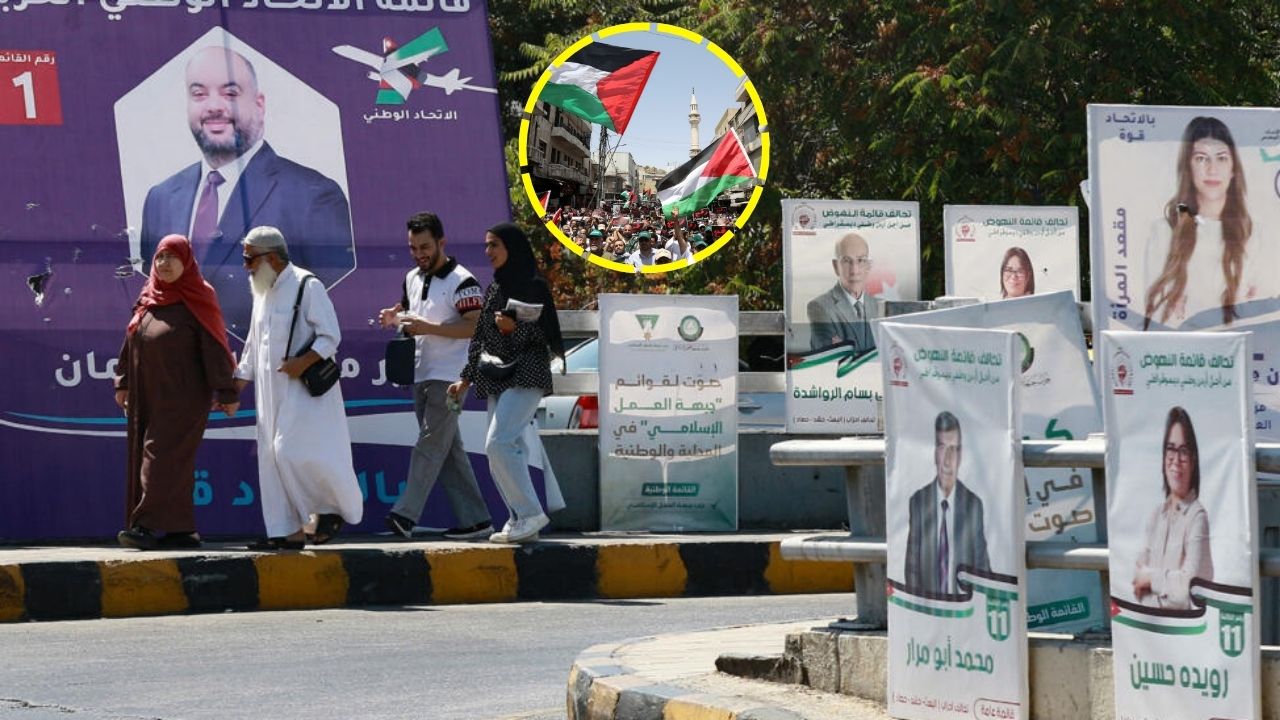The vote is the first since a reform was passed in 2022 that increased the number of seats in the house, reserving a higher number for women and lowering the minimum age for candidates.
Despite the reform, which was a bid to modernise the kingdom’s parliament, voters and candidates have both told AFP the genocide in Gaza is the main issue in Tuesday’s election.
Islamist candidates seeking to capitalise on anger over Gaza were, however, unlikely to score major gains, said analysts who believe the conflict may push abstention rates higher.
Jordan became, in 1994, the second Arab state after Egypt to sign a peace treaty with Israel.
But around half of its population is of Palestinian origin, and there have been regular protests calling for the cancellation of the peace treaty since the genocide started in Gaza after October 7.
Just two days ahead of the vote, a Jordanian man killed three Israeli guards at the border crossing between Jordan and the occupied West Bank — the first such attack since the 1990s.
Voters also worry that no matter the election result, there can be no improvement to the economy until Israel and Hamas reach a ceasefire.
Jordan has seen a decline in tourism since the war began — a sector it relies on for about 14 percent of its gross domestic product.
Compounding the country’s economic woes, public debt has neared $50 billion, and unemployment hit 21 per cent in the first quarter of this year.
Doubts over vote impact
Polling will open at 7:00 a.m. (0400 GMT) local time on Tuesday, and voting will continue until 7:00 p.m. The final results will be announced within 48 hours.
Candidates include tribal leaders, leftists, centrists and Islamists from the country’s largest opposition group, the Muslim Brotherhood-affiliated Islamic Action Front (IAF).
In a busy market in central Amman, where campaign posters were on display, views on the vote in the lead-up to polling day were mixed.
“Elections are important and vital. They are our opportunity to make our voices heard and choose who represents us in parliament, even though deep down we doubt there will be significant change,” said 65-year-old retiree Issa Ahmed.
Mohammed Jaber, a shop owner in Amman, meanwhile told AFP: “People are busy with many things, the Gaza genocide and the bad economic situation. They do not know what the parties will be able to achieve.”
According to the election commission, more than 5.1 million people are registered to vote in the country of 11.5 million.
‘All eyes’ on Gaza
“What is happening in Gaza, from daily killing, destruction, and tragedies broadcast daily on television, makes us feel pain, helplessness, humiliation and degradation, and makes us forget the elections and everything that is happening around us,” said Omar Mohammed, a 43-year-old civil servant.
“I feel bitterness. I am not sure yet if I will vote in these elections,” he added.
Candidates have also focused on the conflict, with Islamists seeking to capitalise on solidarity with Gazans.
“The Gaza genocide and the Palestinian cause occupy a major place in the Jordanian elections, as all eyes and minds are on Gaza and Palestine and the massacres taking place there against the Palestinian people,” IAF candidate Saleh Armouti told AFP.
“The elections… should not be delayed and they serve the Palestinian cause and the region, but I also fear that there will be some abstention from voting due to these events,” he added.
Oraib Rantawi, an analyst and the head of the Amman-based Al Quds Center for Political Studies, agreed the war may drive abstention rates higher but he did not think the Islamists’ focus on Gaza would translate into votes.
“The improvement in these forces’ status and parliamentary representation will be modest,” he told AFP.







